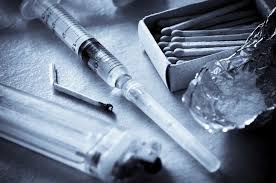Getting heroin addiction treatment for a loved one can be a very difficult, deeply exhausting process that takes courage and determination. As someone who is close to the person battling the addiction, you may feel unsure and apprehensive of how to address the issue. This is understandable as heroin addiction strips the abuser of their personal qualities and characteristics, often leaving them with an inability to reason or behave normally. Because of this, it is important to understand that the issue is not a personal one and that you can provide support without compromising your boundaries.

Get Educated
Start by educating yourself about heroin addiction and the types of heroin addiction treatment available. What are some symptoms of heroin addiction? Someone who is addicted to heroin is rarely honest about their use, but signs of the addiction are usually present. Directly after use, a wave of euphoria occurs, accompanied by many physical symptoms. These generally include flushed skin, dry mouth, constricted pupils, and severely decreased alertness.
The ability to think clearly is severely compromised, and nausea, vomiting, and general itchiness can be physically present. A regular heroin abuser will also often seek out laxatives, as severe constipation occurs from repeated use of the drug. Needle marks may be present on the body if the user is injecting the drug. In time, the body also loses the ability to fight off infections due to a severely compromised immune system. Pain is suppressed, and the abuser is generally unaware of how the drug is affecting their body. Their main point of focus is how to get their next fix.
Because of the severity of hold, this addiction has on users and the painful intensity of withdrawal symptoms, heroin addicts are often afraid of getting treatment, even when they want to stop using. They often try to hide symptoms of use and lie about using. Therefore, it is often up to loved ones to attempt to get help for the user. Loved ones can become educated through support groups like Al-Anon, which can provide local resources and educate loved ones through stories of personal experience.

Know the Treatment Options
Drug and alcohol treatment centers offer several treatment options for heroin addiction. These can include medications such as methadone and buprenorphine as part of detox therapies, combined with behavioral therapy. Treatment centers can offer either outpatient or residential treatment therapy. Outpatient treatment is when patients live at home but receive treatment at a center, while residential treatment requires patients to live in the facility.
An intervention is a good way to begin addressing the issue. When presenting an intervention to the user, it is best to first have a plan and a goal. Professional interventionists are available to help with this. There are also some general guidelines to follow when staging an intervention. They include:
- Tell the addict how their addiction is affecting you and other people around them. Express to them how their behavior worries you. Be sure to stay out of judgement over their behavior and avoid blame.
- Avoid enabling; do what you say you’re going to do. Know that the person who needs treatment has to make the ultimate decision on seeking it. If they choose not to and you have outlined consequences, enforce the consequences. This may not feel good to you, but continuing to enable their behavior will only hurt both of you in the long run.
Get your loved one into treatment immediately. If the person in need commits to going, don’t waste time getting them there. Do not allow “one last fix.” Provide encouragement and support while holding strong to the plan you’ve laid out.
